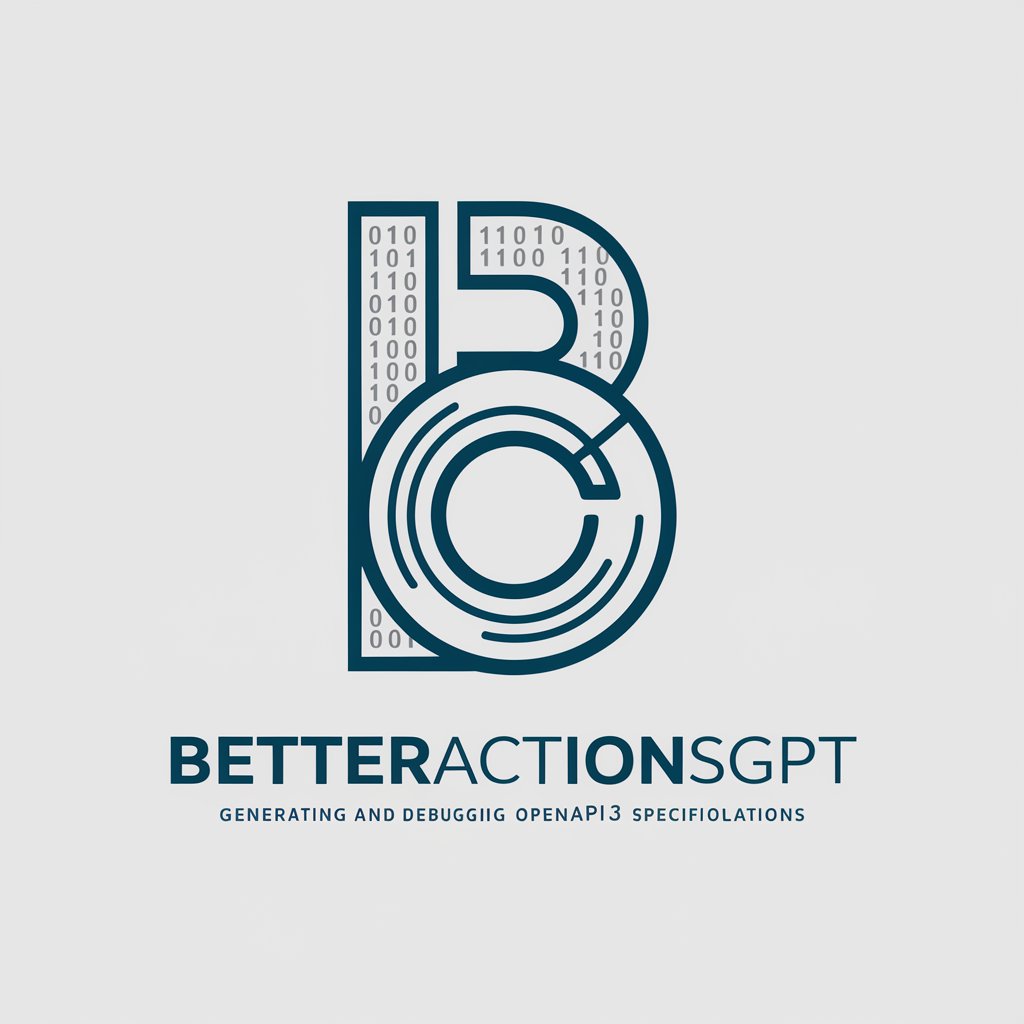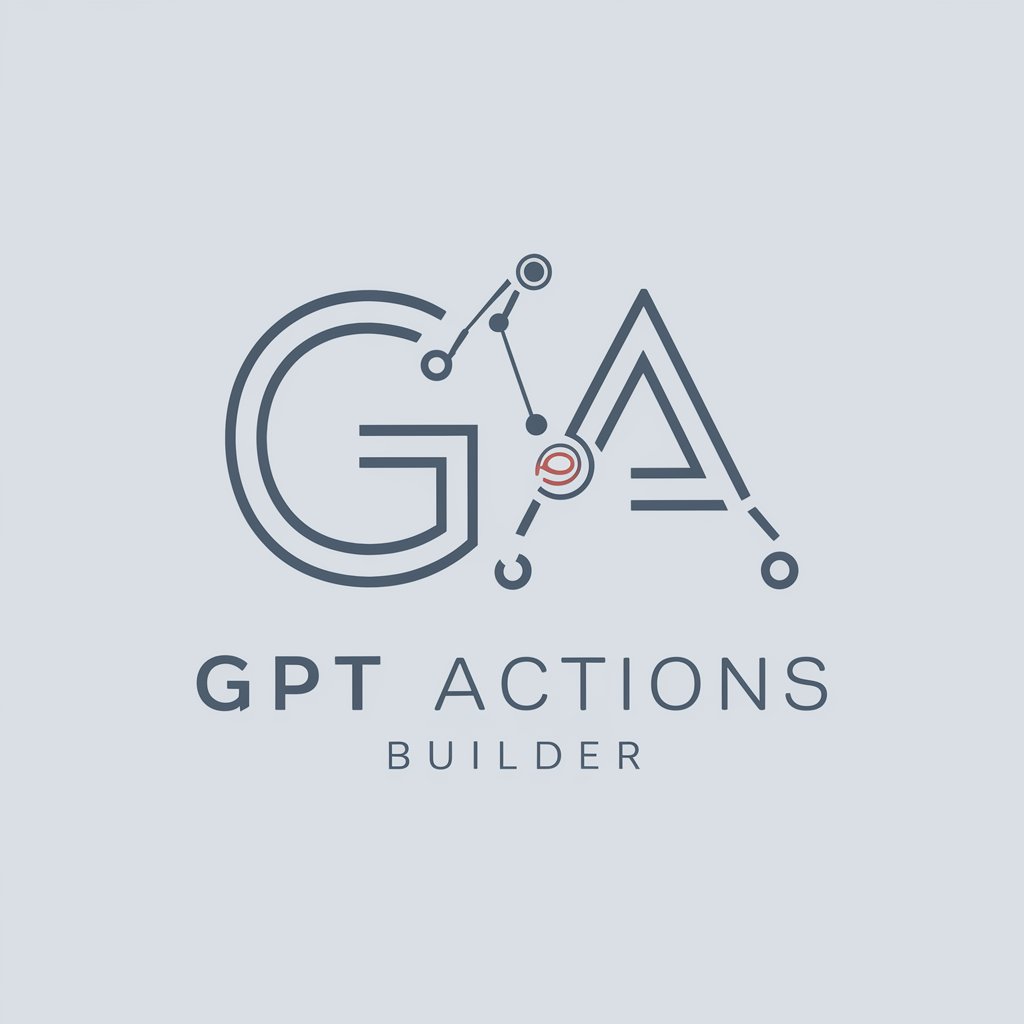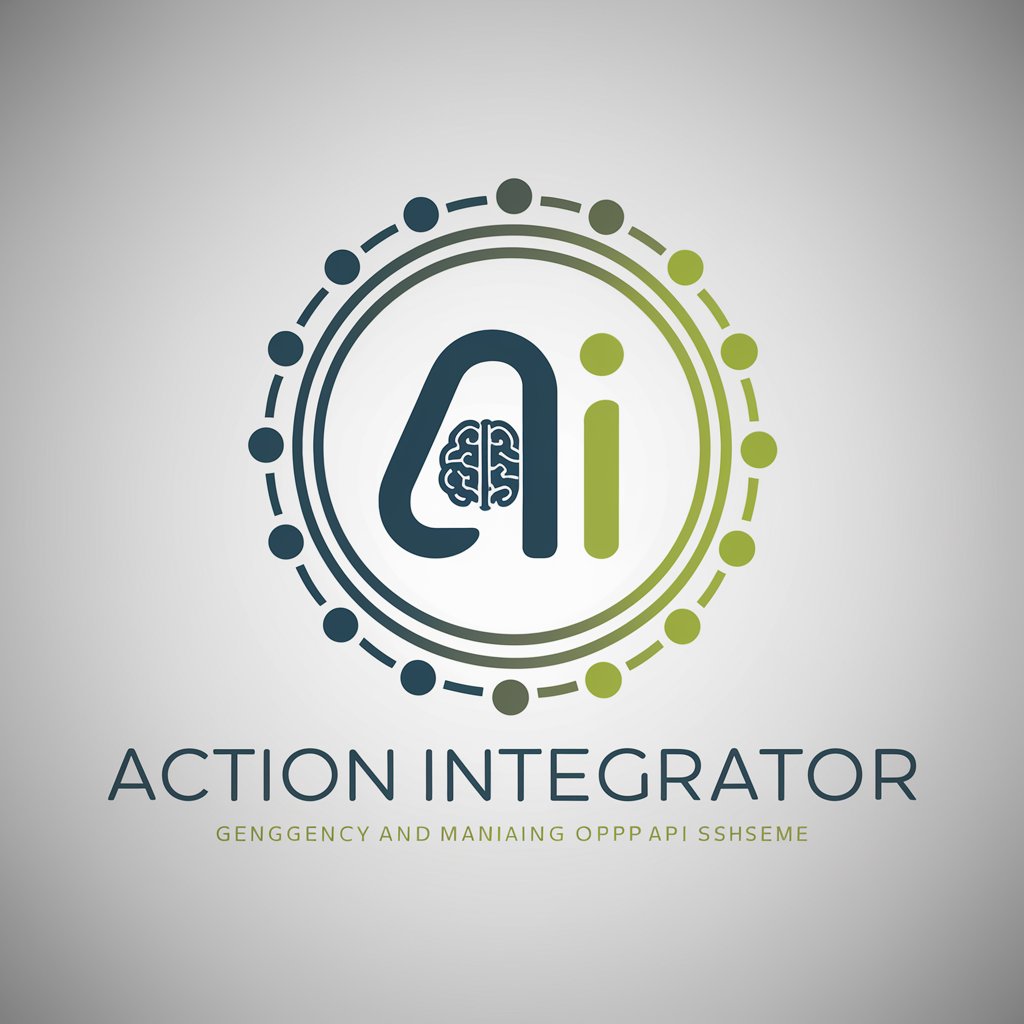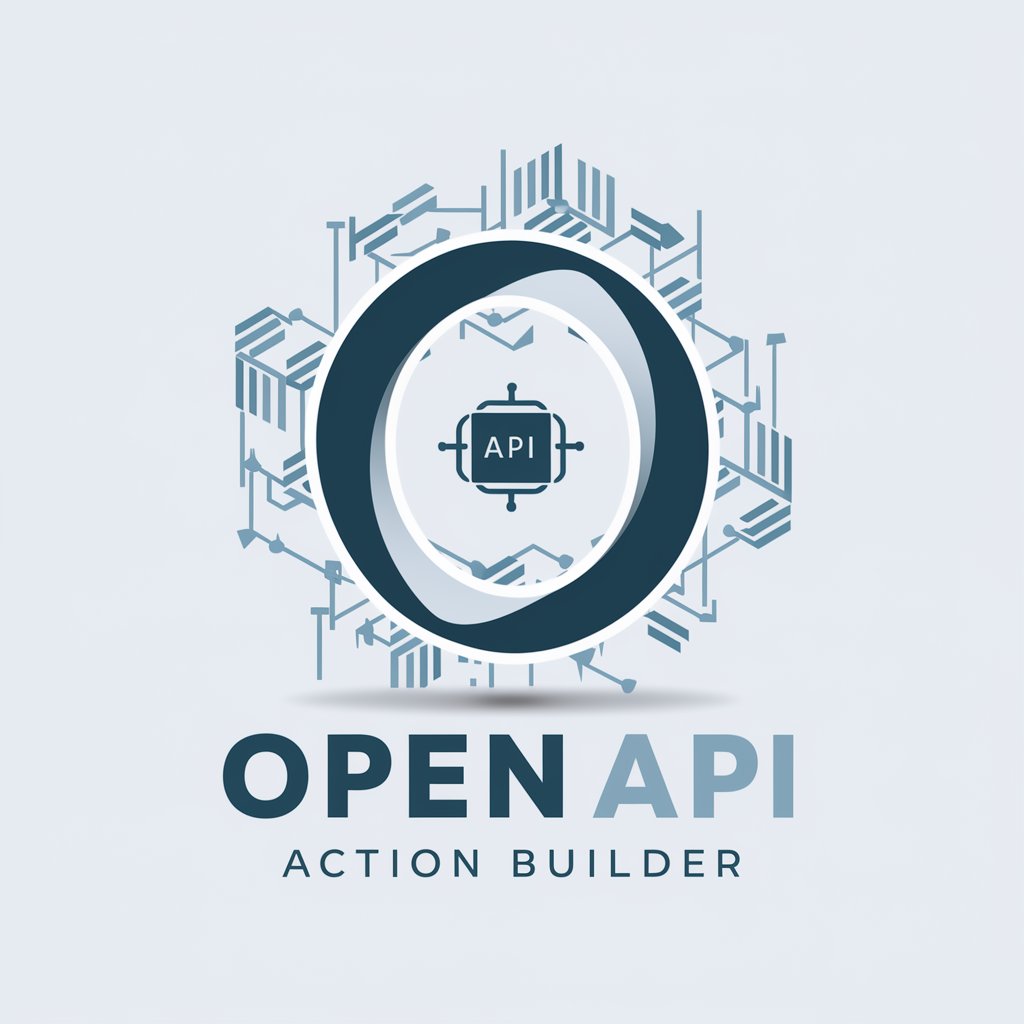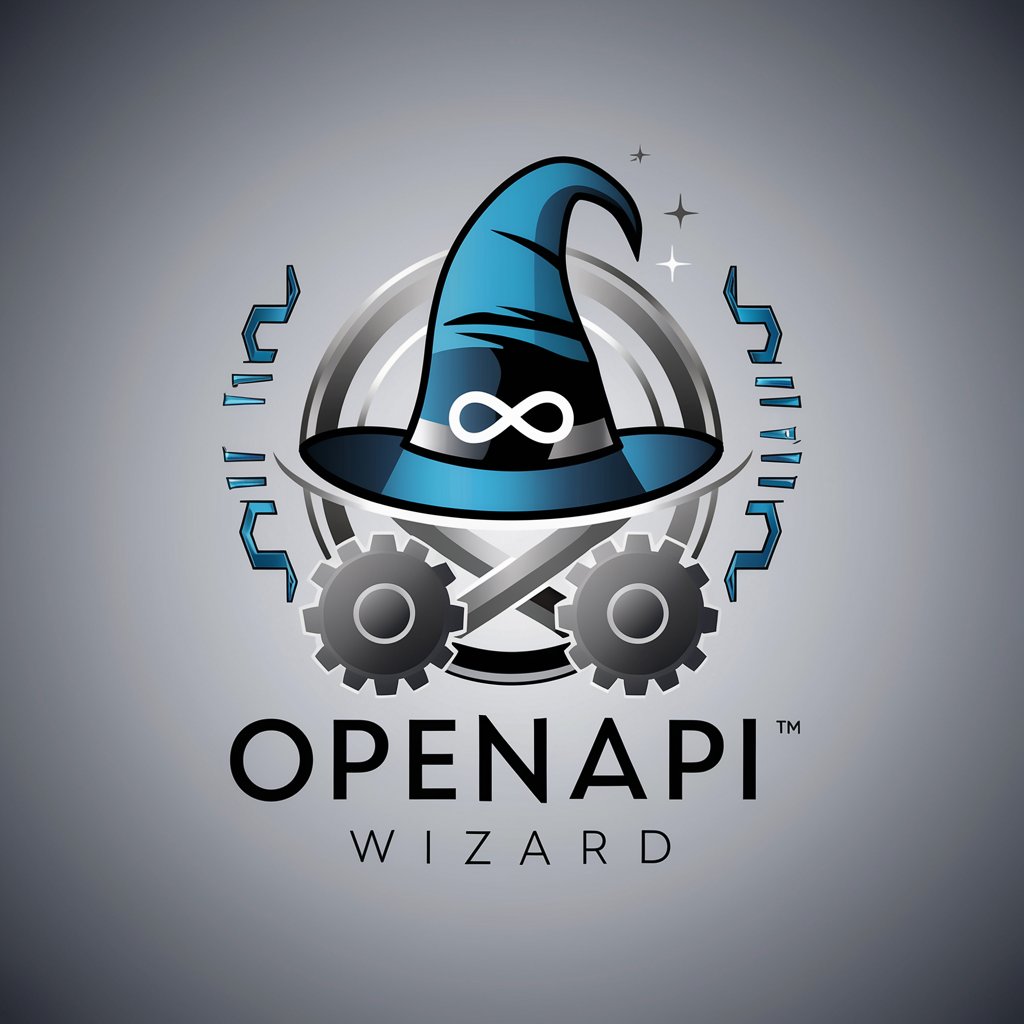
Easy OpenAPI Actions Spec - Efficient API Spec Creation
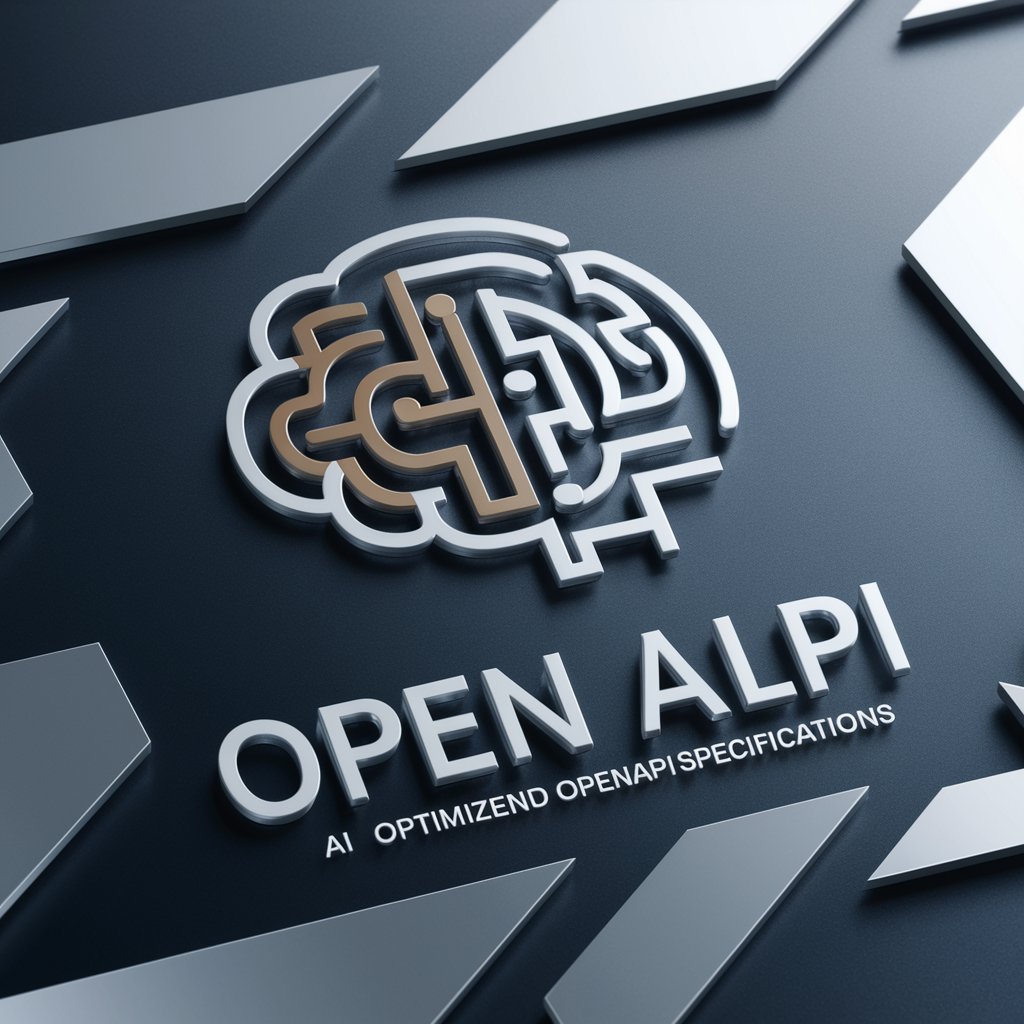
Hello! Ready to streamline your API documentation?
Simplifying API Integration with AI
Design an API schema that...
Create an OpenAPI Specification for a service that...
Generate a JSON schema for an endpoint that...
Define a POST request schema for an API that...
Get Embed Code
Overview of Easy OpenAPI Actions Spec
Easy OpenAPI Actions Spec is designed to assist users in creating OpenAPI Specification documents for their APIs, particularly those intended to work with GPT plugins. The primary objective is to facilitate the integration of external APIs with GPT models by providing a structured framework for defining API endpoints, their functionalities, and data schemas. This service is crucial for enabling effective communication between GPT models and various API services, enhancing the capabilities of both. An example scenario could be a developer creating a plugin for a task management app. They would use Easy OpenAPI Actions Spec to define how GPT can interact with the app's API to create, retrieve, or update tasks. Powered by ChatGPT-4o。

Core Functionalities of Easy OpenAPI Actions Spec
Endpoint Definition
Example
Defining a '/tasks' endpoint for a project management API
Scenario
Developers can specify methods (GET, POST, etc.), expected request and response formats, and detailed descriptions for each endpoint, enabling GPT to understand and interact with these endpoints efficiently.
Schema Specification
Example
Creating a schema for a 'Task' object in a todo-list API
Scenario
This involves defining the properties of data objects (like 'Task') and their types, ensuring that GPT can accurately parse and utilize the data exchanged with the API.
Error Handling Documentation
Example
Outlining response codes and messages for various error states
Scenario
Enables GPT to understand different error responses and react accordingly, enhancing error handling in the integration.
Target User Groups for Easy OpenAPI Actions Spec
API Developers
Developers who are building APIs that need to interface with GPT models. They benefit from the structured approach to documenting their API, ensuring seamless integration with GPT.
GPT Plugin Creators
Individuals or organizations creating GPT plugins for various applications. They use Easy OpenAPI Actions Spec to define how their plugins will interact with GPT, ensuring effective communication and functionality.

Guide to Using Easy OpenAPI Actions Spec
1
Begin by visiting yeschat.ai for a hassle-free trial, accessible without login or the necessity of ChatGPT Plus.
2
Familiarize yourself with OpenAPI Specification documentation to understand the structure and syntax required for API definitions.
3
Define your API endpoints, including paths, operations, parameters, and responses, using the Easy OpenAPI Actions Spec format.
4
Utilize the spec to integrate with ChatGPT plugins, ensuring alignment with your API’s functionality and desired interactions.
5
Regularly test and update your spec to optimize compatibility and functionality with ChatGPT's evolving capabilities.
Try other advanced and practical GPTs
Equity Analyst
Empowering Your Investment Decisions with AI

Astro Light Explorer
Illuminate the cosmos with AI-driven analysis.

CPF Guide Bot
Navigate CPF with AI-powered Clarity

Image Editor
Transform Images with AI-Powered Precision

NewsToons
Transforming News into Engaging Comics

Code Canvas
Bringing creative visions to life with AI

Java Tutor
Empowering Java Mastery with AI-Driven Insights

Market Mastermind
Elevate Your Strategy with AI-Powered Insights

MultiAgent Wizard
Harnessing AI for Expert-Level Assistance

App-GPT
Transforming Ideas into Code Seamlessly

Chef Gpt
Tailored Recipes at Your Fingertips
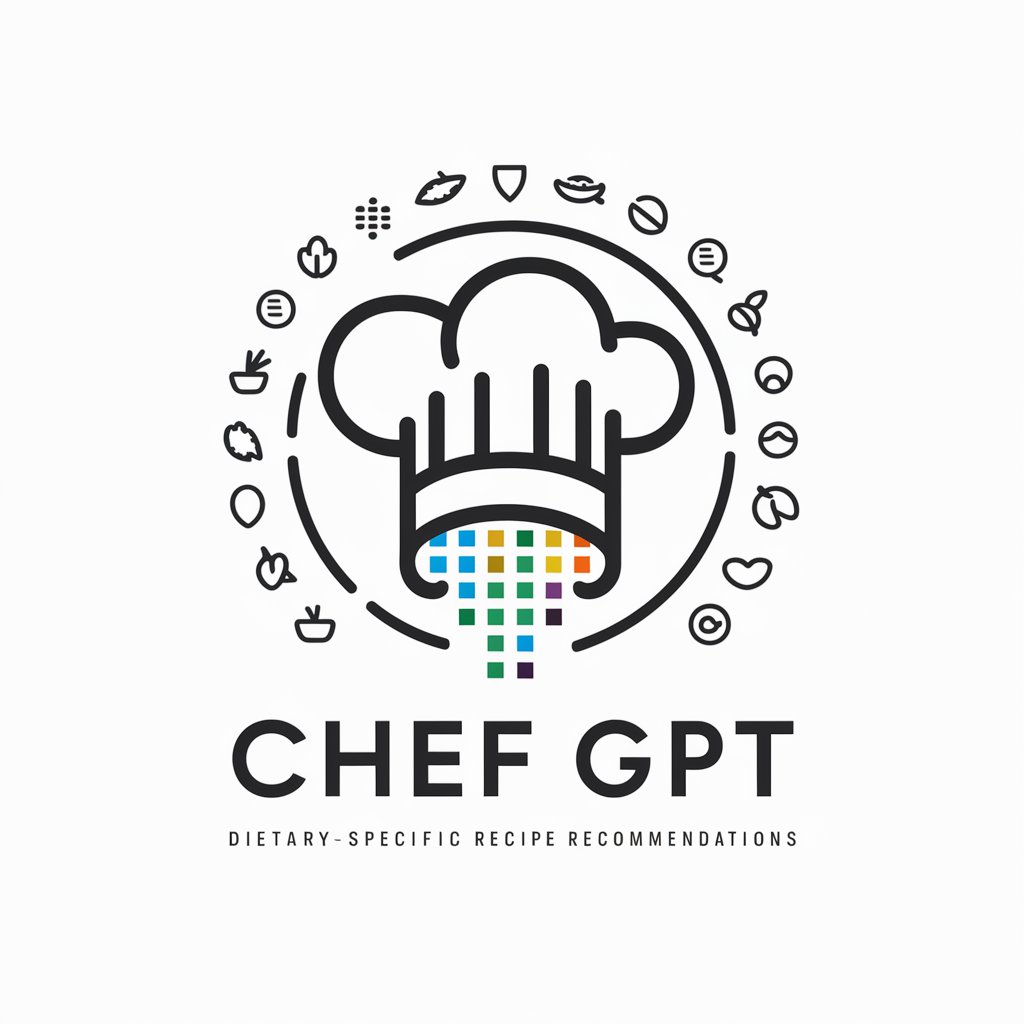
Task Breakdown Assistant
Simplify Projects with AI-Powered Task Organization

Frequently Asked Questions about Easy OpenAPI Actions Spec
What is the primary purpose of Easy OpenAPI Actions Spec?
Easy OpenAPI Actions Spec is designed to simplify the creation of OpenAPI specifications, allowing seamless integration with ChatGPT plugins for efficient API interaction and management.
Can Easy OpenAPI Actions Spec be used for any type of API?
Yes, it is versatile and can be adapted for various APIs, provided they conform to OpenAPI standards for defining RESTful interfaces.
How does Easy OpenAPI Actions Spec enhance ChatGPT plugin development?
It streamlines the process of defining API endpoints, making it easier for developers to specify how ChatGPT should interact with different APIs.
What are some best practices for writing a spec with Easy OpenAPI Actions Spec?
Best practices include clear and detailed descriptions of each endpoint, consistent naming conventions, and regular updates to align with the latest ChatGPT functionalities.
Is technical expertise required to use Easy OpenAPI Actions Spec?
Basic understanding of API development and OpenAPI standards is beneficial, but the tool is designed to be user-friendly for those with varying levels of technical expertise.
